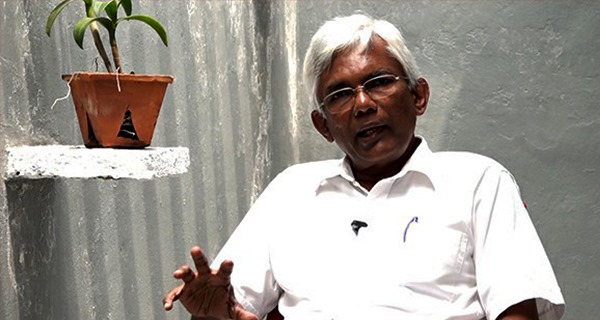Banks in Sri Lanka provide loans with a guarantee and according to the income received, they do not have a business looking lending system and as a result microfinance institutions have entered the field, said Chartered Accountant Harsha Gunasena.
Chartered Accountant Harsha Gunasena who participated in the discussion stated,
“Poverty in Sri Lanka has been around for a long time. Our country has a wide base of rural loans such as interest money lenders, cooperative credit unions SANASA and rural banks.
As a country we are a low middle income country. Per capita GDP has risen to a certain extent, but not before. But income inequality is very high. ” That is.
He also commented on the commercialization of the microfinance sector.
“Lending to the rural sector has been commercialized in recent times due to certain activities with the inclusion of private sector institutions. This is not a bad thing. But in a country like Bangladesh, the microfinance system started by Mohamed Younus serves the less privileged people in rural areas. In addition to lending to them, there are other programs to uplift the rural population. ”
He also stated that due to the current economic crisis in the country, the people have to face various problems and difficulties.
“Considering the country’s economy, there has been no budget deficit for only two years. In all other cases, the costs really figure out to be the same for salon and regular retail products. Having been in debt for a long time, I have had to borrow more to pay off those debts.
What can be done to overcome it? The problem is very serious. As a country, the previous government took various measures to reduce the budget deficit. But with the advent of the present government those policies changed.
About 80% of government revenue in our country is indirect taxes. Countries like Singapore and India charge more direct taxes. There is no huge gap between direct taxes and indirect taxes like in our country. These economic problems have caused many hardships to the people. ”
“In our country, the economy is concentrated around Colombo. There is a need for a program to uplift the economy of the people in rural areas. Bank loans in our country are given with a certain guarantee. They do not have a lending system based on their income. That is why microfinance institutions have come to this field. Their arrival should bring some relief to the rural economy.
But it has a different situation. The reason for this is the prevailing Kovid situation and even more so the extreme poverty of these people. On the other hand, the attitude of these people is that a businessman is considered to be a high profit earner. Business is not as well-recognized as other professions. ”
In this context, he proposed a solution to the microfinance crisis.
“If loans are taken for microfinance consumption, the government should help increase their income. If business loans cannot be repaid, the government should intervene and provide relief. If that does not happen, the people must come to a collective and non-performing position. How to repay the loan, you can come up with a plan and come to an agreement that the loan will not be repaid during this period. But it’s a somewhat serious proposition.
He was speaking at a discussion organized by the Right Media Circle on Zoom on the topic of “The Microfinance Debt Epidemic that Beats the Covid Epidemic”.
Nirosha Guruge, PhD candidate Neda de Silva and researcher Amali Wedagedara spoke on behalf of the Women’s Movement for Freedom.
